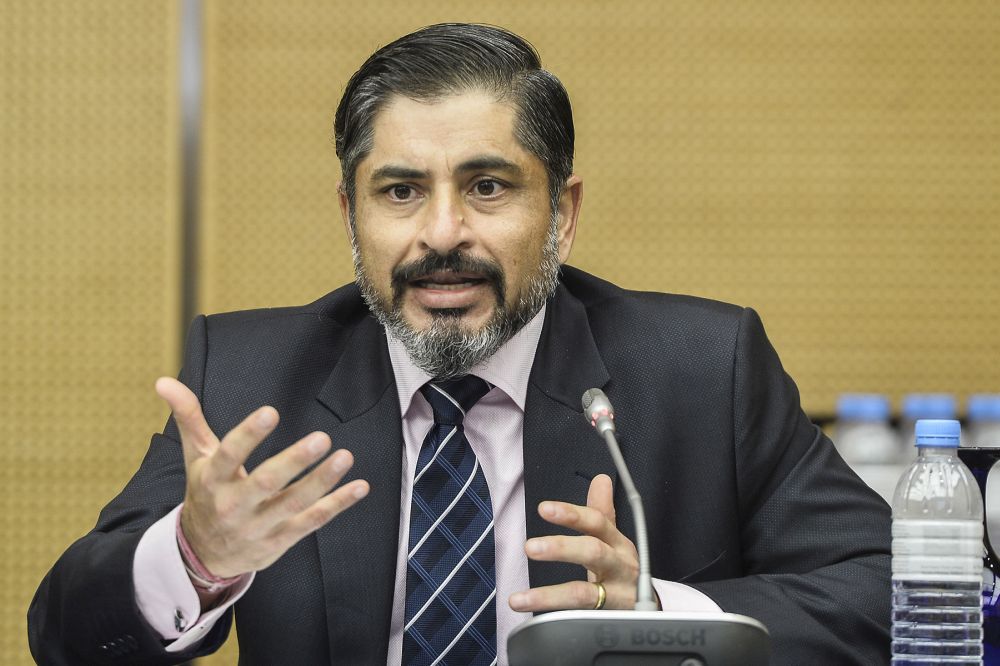KUALA LUMPUR, Sept 24 — Malaysian borrowers who ask banks for help to work out new arrangements to pay their existing loans amid the Covid-19 pandemic will not be blacklisted or see their ability to take on new loans affected, the local banking industry has said.
Local banks assured borrowers that their credit profile or credit report in the Central Credit Reference Information System (CCRIS) system would not negatively record their having asked for loan repayment assistance.
Information in the credit report from the CCRIS system is usually used by banks to decide applications for loans or to assess the creditworthiness of existing borrowers.
Rakesh Kaul, RHB Bank’s Group Head Retail Banking, said that banks in Malaysia have been making an unprecedented effort amid the Covid-19 pandemic to reach out to all borrowers who may need help with their loan repayments — including through the use of social media.
But he noted that borrowers — including small and medium enterprises (SMES) and the public generally — may feel that their CCRIS credit profile might be impacted if they were to ask for repayment assistance.
“I think they feel if they take this (repayment assistance), maybe they won’t get any further loans or maybe their other financing facilities might get affected,” he said at a roundtable event yesterday with senior officials of six banks and the Credit Counselling and Debt Management Agency (AKPK) together with the media.
He sought to dispel such a misconception by borrowers, stating instead: “This is clearly a policy decision — that nobody’s credit rating for their facilities or for their future loan requirements will be impacted if they come to the banks for this targeted repayment assistance. So this is clearly a message we want to give to our customers, whether they are retail customers or SMEs.”
He noted that some SMEs may also feel reluctant to approach banks as they feel that the loan repayment assistance are not in standardised form like property mortgages or hire purchase loans, but pointed out the high approval rate of 100 per cent by RHB for SMEs or individual borrowers who applied for help with flexible loan repayment arrangements.
CIMB CEO Datuk Abdul Rahman Ahmad similarly assured that borrowers’ future ability to take up new loans would not be affected by them having asked the banks’ help for loan repayment arrangements.
“Even if they apply for relief assistance, there will be no impact to their CCRIS status, there will be no CCRIS tagging, so this has no impact on their creditworthiness going forward.
“So they don’t need to worry, whether to apply or not to apply and fear that in the future this has an impact in terms of them applying for a loan, or asking for a new loan in the future.
“So I think that really shows a commitment by the bank to actually assist the affected borrowers that need help because of the Covid-19 impact,” he said at the same event.
He urged borrowers to however approach their banks as early as possible if they need help with working out flexible loan repayment arrangements, highlighting the need to give banks enough time to process such loan relief applications as quickly as possible since the loan moratorium ends on September 30.
From the time the completed application for loan repayment assistance reaches the banks, the application process for individuals takes between one and five days, while for SMEs, it would take between three days and two weeks.
The various options that borrowers can work out with banks include applying to pay only the interest on their loan for a certain time, paying a reduced loan installment with the reduction in proportion to their salary cut, or prolonging their loan tenure to reduce the monthly installments.
If borrowers lost their job this year and have yet to find a new job, they can apply for a further three-month loan moratorium after the blanket moratorium — for all loans and all borrowers — ends on September 30.
When asked whether banks would offer loan repayment assistance in situations such as when the loan is in the name of the husband who remains employed but with the wife having lost her job, the senior bank officials replied in the affirmative.
RHB’s Rakesh said that ultimately, it was a matter of highlighting the family’s financial situation to the banks, noting: “In fact, we have quite a few of such cases, so it’s not just the main income earner being impacted, it’s the family income... could be parent or sibling. So banks are open to discussing all possible cases, so it’s just a matter of reaching out and having that conversation.
“And I can assure you that at RHB and the banking industry, we are more than happy to have those conversations and approve as many of those cases as possible. This is the time for the banking industry to step up and help the country and that’s exactly what we are aiming to do,” he said.
Hong Leong Bank CEO Domenic Fuda similarly said banks would take into account the overall household income of borrowers, but said banks would not know of such developments if the borrowers do not raise these with them.
“Even though the main borrower continues to work, but when you look at it holistically, there has been an impact. We will consider the reduction in income, but we don’t know, so the customer has to come forward and give us the picture. So if they do — and we have cases exactly like that — so if customers come forward and tell us that, help is available,” he said.





















